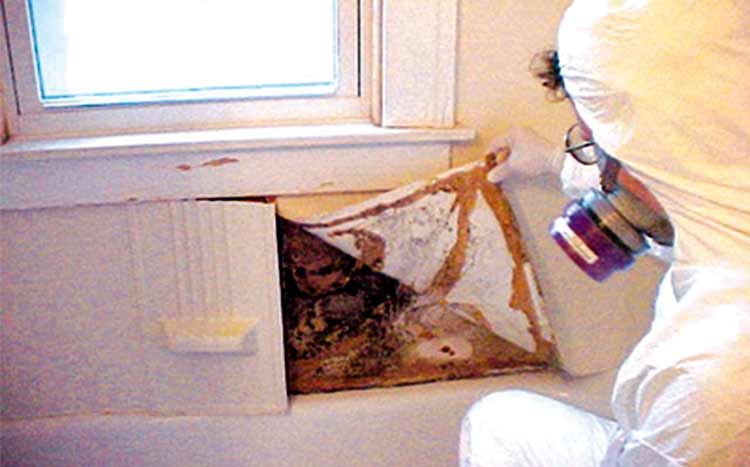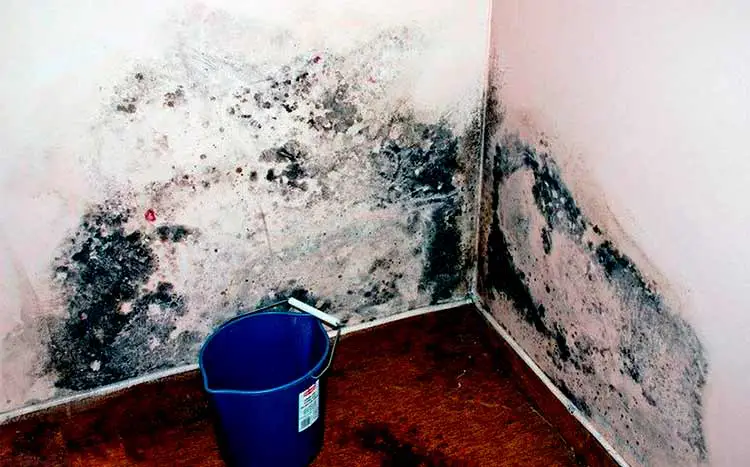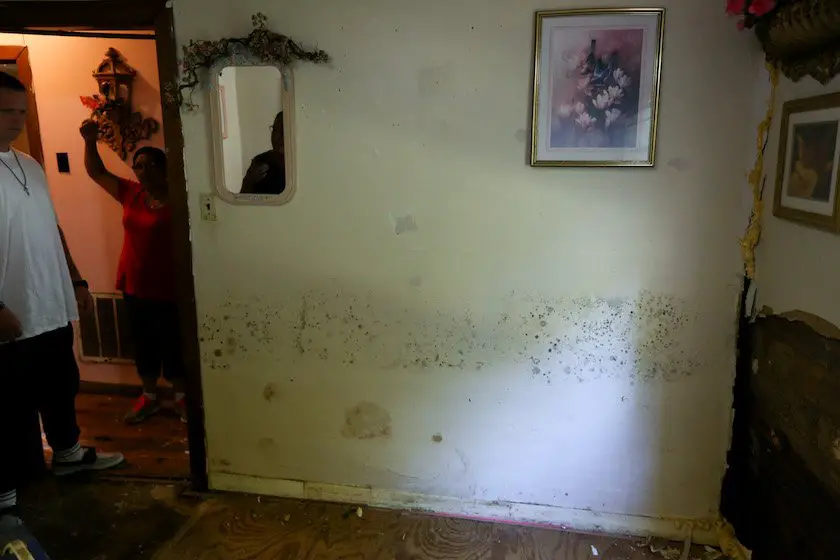What You Can Do If Youre A Tenant In Texas
Tenants might feel like there is nothing they can do if they look up one day and see their ceiling spotted with a constellation of black dots.
Some landlords are very helpful, but others are notoriously slow to deal with tenant complaints. Many are even out-of-state investors who only collect rent checks and rely on property managers to deal with apartment issues.
When this is the case, sometimes tenants have to take matters into their own hands. Texas courts have recognized two self-help strategies for tenants after a mold outbreak on a rental property:
See the Texas Tenants Rights Handbook for more information on both strategies.
Can I Sue My Landlord For Black Mold
Created by FindLaw’s team of legal writers and editors
If you have reason to believe your rental is contaminated with toxic black mold, and it has caused health problems, suing your landlord for black mold is one way to get compensated.
The following information will help you understand your rights and legal options when you have been injured by black mold in an apartment or other rental unit.
S To Take If A Landlord Refuses To Remove Mold
In case your landlord fails to take any action after you report a dangerous mold outbreak, you have the legal right to:
- Stop paying rent until the remediation is complete
- Pack up and leave
- Charge your landlord to pay for alternative living expenses
- Use a months rent to hire a mold inspector and remediator
- Complain to appropriate authorities
- Sue your landlord for damages
California mold disclosure laws are designed to protect tenants from the dangers of mold. If your landlord does not comply, then you can take legal action against them.
You May Like: How To Get Rid Of Mold In Shower Ceiling
Also Check: How To Remove Mold From Bags
Key Definitions Under Vrlta 55
· Visible evidence of mold means the existence of mold in the dwelling unit that is visible to the naked eye by the landlord or tenant in areas within the interior of the dwelling unit readily accessible at the time of the move-in inspection.
· Readily accessible means areas within the interior of the dwelling unit available for observation at the time of the move-in inspection that do not require removal of materials, personal property, equipment or similar items.
· Interior of the dwelling unit means the inside of the dwelling unit, consisting of interior walls, floor, and ceiling, that enclose the dwelling unit as conditioned space from the outside air.
· Mold remediation in accordance with professional standards means mold remediation of that portion of the dwelling unit or premises affected by mold, or any personal property of the tenant affected by mold, performed consistent with guidance documents published by the United States Environmental Protection Agency, the U.S. Department of Housing and Urban Development, the American Conference of Governmental Industrial Hygienists , Standard Reference Guides of the Institute of Inspection, Cleaning and Restoration for Water Damage Restoration and Professional Mold Remediation, or any protocol for mold remediation prepared by an industrial hygienist consistent with said guidance documents.
Laws About Tenant Rights To Privacy

Most landlord tenant law protects a tenants right to quiet enjoyment. meaning they have the benefit of living in a home without being disturbed. Once a tenant has possession of a property, the landlord may not interfere with this right. Its, therefore, the landlords responsibility to ensure he or she does not enter the rental unit without proper notice . When a landlord enters the rental property, it must be at a reasonable time of day and for a valid reason.
Also Check: What Do You Do About Black Mold
Can You Withhold Rent For Mold
As a tenant, you do not have the right to withhold rent for mold as you could be evicted and the house repossessed by the landlord. Instead, you can make repairs yourself and claim the cost of repairs later. It is a very risky action to withhold rent.
However, before you carry out any repairs, you may need legal counsel from your housing disrepair solicitors to determine how to go about it.
What Are My Obligations Regarding The Condition Of My Apartment
As a tenant, you must keep your unit clean and use it in a reasonable way.
For example, unless you have permission from the landlord, you cannot use or keep any extremely flammable or explosive substances. Also, you cannot have too many people living in your unit. The law says that the number of people in a rental unit must allow every person to live in reasonably comfortable conditions.
If your actions make the apartment unsafe or unsanitary, your landlord can file an application with the TAL. The TAL can order you to pay a sum of money to the landlord or to respect your obligation to properly maintain your apartment. Your landlord can also ask the TAL to cancel the lease if your actions cause the landlord serious harm.
Outside Links
Don’t Miss: Can Mold Allergy Cause Fever
What If I Cant Afford To Cooperate
To help get rid of the bedbugs, you may be asked to move furniture, launder clothing, linens, or take other steps to assist in the process. If you cannot afford to do these things or are not able to do them, your landlord can go ahead with the necessary steps and charge you for any costs specific to you . If your landlord fronts these costs for you, after first telling you how much they will be, he can ask that you repay those costs over a 6-month period .
Laws About Making Repairs
Tenants have the responsibility of reporting any repairs that need to be done, as outlined in the lease agreement. Landlords responsibilities include responding to these reports and completing repairs in a timely manner. Both parties can easily complete these tasks in a property management software that offers a tenant portal and maintenance tracking.
A tenant may be within their rights to withhold rent money if a landlord fails to make a repair that affects the health or safety of a tenant, like a broken heating unit in freezing temperatures.
Also Check: What Cleans Black Mold In Shower
Laws About Known Criminal Activity
If a landlord becomes aware of any criminal activity taking place in one of their rental units, they must report it to authorities. Illegal tenant activity could involve drug use or distribution or much worse.
A landlord is typically responsible for protecting the neighborhood of the rental property from the criminal acts of his tenants and could be held liable or face a variety of legal punishments if illegal activities occur at the property.
Responsibilities Of A Landlord If There Is Mold In A Rental They Own
The landlord has one overall responsibility that generalizes all their responsibilities in one:
Provide a habitable environment for the tenant.
Mold prevention will always be the biggest proponent of ensuring a mold problem doesnt occur in a rental home you own. So as a landlord, be sure you practice good home maintenance and educate your tenants on the 27 things they can do to prevent mold.
Have The Property Inspected For Any Leaks/HVAC Issues
Before the tenant occupies the property, a landlord should come up with some kind of schedule to have the home inspected to prevent mold. Once a quarter should probably be sufficient but that will be up to both the tenant and landlord to decide.
A landlord should look for any visible stains or signs of a leak. Is paint bubbling at all? Are any drywall nails popping out of the wall? These are tell-tale signs that there may be moisture intrusion into the home.
An HVAC company should be hired to perform maintenance on the unit once every 6 months or so.
If any parts of the HVAC unit, the unit itself, or any plumbing fixtures are not properly functioning, the landlord must repair or replace.
Have Leaks Corrected Right Away
The sooner water intrusion is corrected and dried out the more of a chance mold can be nipped at the butt!
If a landlord takes their good old time to dry up a water damaged area, well, you can expect a mold problem if the conditions are right.
How Long Does A Landlord Have To Fix A Mold Problem?
Recommended Reading: How To Treat Mold On Wood Furniture
Discovering Black Mold In Your Rental: First Steps
Suing your landlord for black mold should not be the first response upon discovering it in your rental, provided you haven’t suffered any health problems from being exposed. As with most landlord-tenant disputes, you should contact the landlord immediately upon discovering mold . The landlord is legally responsible for removing the mold and reimbursing you for any additional costs you have sustained. Even if you don’t suffer any injuries, a landlord’s failure to maintain a mold-free environment violates the implied warranty of habitability.
If the landlord fully takes care of a mold issue but you later exhibit health problems that you suspect were caused by the earlier mold exposure, you still may claim damages. If your landlord contradicts your concerns that your rental unit is contaminated with black mold, it’s up to you to pay for an inspection and testing but landlords who refuse to even consider the presence of toxic mold in such instances may open themselves up to increased liability.
Is It The Landlords Responsibility To Remediate Mold

Yes, it is the landlords responsibility to remediate mold. This is because, under the law, the landlord has an obligation to keep the property in a reasonable state of repair. The landlord also has to ensure that the premises are habitable.
And even though mold problems are not generally considered to be urgent repairs, they can make premises uninhabitable. They can also compromise a propertys state as being reasonably repaired. Therefore, mold problems are the responsibility of landlords.
However, it is not their responsibility to fix the mold problem if the tenant is directly responsible for causing it in the first place. In cases where mold arises because of the tenant forgetting to turn off their tap, failing to use fans, or keeping wet or moist items in poorly aerated spaces, the landlord is normally not required to shoulder the burden of remediating the mold that results.
Also Check: How To Get Mold Out Of Outdoor Rug
What Can A Tenant Do If The Landlord Refuses To Fix A Mold Problem
Mold-related legislation is not currently required in every state. Despite this, premises liability and personal injury law still adhere to the principles established by the statutes that govern these matters. That implies negligence is a factor in determining responsibility.To be found liable for negligence in a premises liability claim, someone must have been aware that the issue existed or should have been aware that the problem existed. In some circumstances, negligence can be established circumstantially. Its not uncommon for landlords to be held responsible for creating a toxic environment if the problem is mold exposure.A mold infestation, on the other hand, will need to be demonstrated.This can be done in the following ways:
How Can A Tenant Withhold Rent
Once they find mold in their apartment, they need to send notice to their Landlord. It needs to state that they have 7 Days to remove it. If it is not removed, the Tenant can withhold rent. Therefore, if the Landlord attempts to evict them for non-payment of rent, they have a valid defense. It is important that they do not prevent them from coming to the property to inspect for the mold.
If you are Tenant that has discovered mold, it is important that that follow Florida Statute. Therefore, if you are faced with this issue, call the Law Office of Brian P. Kowal, PA at 990-7552.
Don’t Miss: Is All Black Mold Toxic
How Much Can A Mold Lawsuit Be Worth
There is no specific formula to determine how much a lawsuit involving mold will be worth. It can depend on whether or not the landlord was proven to be negligent as well as the severity of any health problems that were ultimately caused by the mold.
A lawsuit can be worth thousands to even hundreds of thousands based on these factors. If you have experienced serious health issues due to mold growth in your home and the landlord did nothing, it could be worth quite a bit.
Consult with an attorney if this fits your current situation. Even if you have not had your health seriously impacted, there is a good chance that you have been financially impacted due to mold on the property and a failure to act on the part of the landlord. It is a good idea to have the mold removed immediately, even if you are the one to pay for the costs upfront.
Tip #: Fix All Leaks As Soon As Possible
Without prompt water damage restoration, mold growth starts in as fast as 48 hours. Here are some things you can do to prevent a mold problem:
- Deal with any mold growth as soon as you find it to prevent further growth and possible health complications.
- During routine inspections, check for any leaks or water damage beneath cabinets and around all water fixtures.
- Encourage your tenant to place a maintenance request immediately when they spot a mold problem.
- Always conduct a move-in inspection before the tenant moves in.
Don’t Miss: What To Do If You Have Mold On Your Walls
Are There Options To Consider Before Breaking My Lease
Vacating your apartment early should be your last resort. You should start with less extreme options, such as hiring a professional to deal with the mold and deducting your expenses from your rent . You may also be able to withhold some or all of your rent until the landlord addresses the mold problem.
If your lease is ending soon, and the mold issue is not severe, it may be easiest just to move out instead of renewing. Or, if you’re on a month-to-month rental agreement, you can give your landlord one months notice before moving out.
The Landlord Has Not Fixed A Water Leak Or Remediated Visible Mold
In this instance, you may be wondering how long a landlord has to fix a mold problem after a tenant has called attention to it. Although there is no established time frame, if the landlord delays fixing the issue, it will get much worse.
When your landlord either delays or refuses to fix the mold problem, the health of you and your family are at risk and you can sue.
You May Like: How To Get Rid Of Mold Carpet
Applying To The Nsw Civil And Administrative Tribunal For Orders
You can apply for one or more of the following orders:
- that the landlord do the repairs you have specified apply within 3 months of the landlord failing to do repairs by your deadline
- that the rent is reduced from when you told the landlord/agent about the need for the repairs until repairs are done apply at any time before the end of the tenancy
- that the landlord compensate you for losses you suffered because they did not do the repairs apply within 3 months of the landlord failing to do repairs by your deadline
- that all or part of the rent is paid to the Tribunal until the repairs are done
People who are not named on the tenancy agreement as tenants cannot apply to the Tribunal.
Do I Have To Have The Property Inspected For The Mold Removal To Be Covered By The Landlord

Not always. Mold removal can be covered without an inspection where:
- Your landlord agreed to the mold removal or
- Without an agreement, a court finds that the mold condition materially affects the physical health or safety of an ordinary tenant and lets you:
- end your lease, or
- get a court order requiring mold removal.
If, however, you want to use the repair and deduct remedy, you must have the appropriate local housing, building, or health official provide the landlord with written notice that the mold condition materially affects the health or safety of an ordinary tenant. This official might be a city health inspector, for example.
Recommended Reading: How Long Does It Take For Mold To Go Away
Can Mold Be Removed
Yes, through a process called mold remediation, which can be costly.
The Environmental Protection Agency has published tips on how to remediate mold online. The EPA asserts that water damage must be addressed within 24-48 hours to avoid toxic mold growth. In other words, if it has been longer than that since water damage occurred to your rental property and that water damage has gone unaddressed, you will have mold growth.
